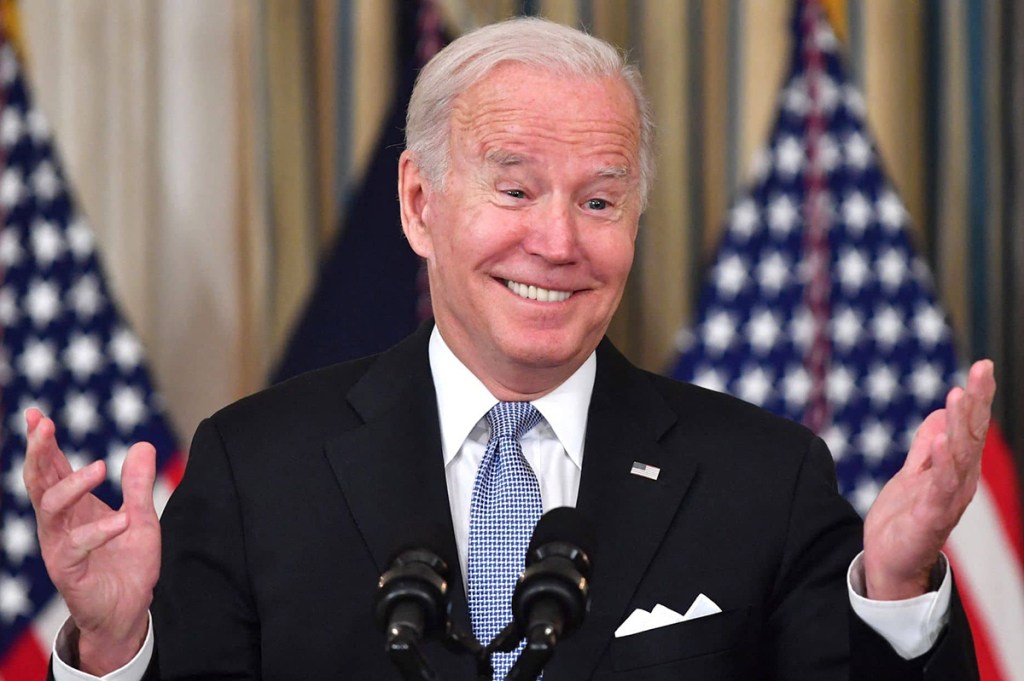Recession? What recession?
Magical thinking has long dominated the Biden White House’s approach to economics. Egregious examples include the president’s insistence that there is no relationship between public spending and inflation, or the related nonsensical notion that a massive multi-trillion-dollar spending package will actually help bring prices down. The third, and perhaps the most notorious, inflation-related mistruth: that it would only be a short-term blemish on an otherwise booming economy. Then there’s the especially risible idea that, by virtue of the fact that most emergency pandemic spending automatically expired on Biden’s watch, he deserves to viewed as one of the toughest book-balancing budget hawks in US history.
These arguments all share two crucial traits. First, they’re all plainly wrong. And in many cases, subsequent developments would quickly prove that to be the case. But bogus economic arguments aren’t exactly unusual in Washington. But the second, more distinctive characteristic is their outlandishness. There’s economic salesmanship, and then there’s the kind of completely unserious spin Team Biden indulges in.
The most recent contender for this category comes in the form of a post on the White House Council of Economic Advisors blog titled “How do economists determine whether the economy is in recession?” It opens:
What is a recession? While some maintain that two consecutive quarters of falling real GDP constitute a recession, that is neither the official definition nor the way economists evaluate the state of the business cycle. Instead, both official determinations of recessions and economists’ assessment of economic activity are based on a holistic look at the data — including the labor market, consumer and business spending, industrial production, and incomes. Based on these data, it is unlikely that the decline in GDP in the first quarter of this year — even if followed by another GDP decline in the second quarter — indicates a recession.
The post comes ahead of Thursday’s second quarter GDP figures, surely a sign that the White House team aren’t expecting good news. NEC director Brian Deese described the blog as “important context ahead of this week’s Q2 release.” On Meet the Press yesterday, Treasury secretary Janet Yellen said she would be “amazed” if the group of NBER economists who rule on whether or not the economy is in recession call one if we learn on Thursday that the US has posted two consecutive quarters of negative GDP growth.
In this case, the problem is less the ins and outs of what, in fact, constitutes a recession, but the fact that the White House seems to think it can spin its way out of an ever gloomier economic situation. Nowhere is Ronald Reagan’s famous mantra that “if you’re explaining, you’re losing” truer than on economics. White House hype will not make up for the price being paid by American households for its management of the economy. In fact, it may make the political consequences of a souring economy worse. After all, a guaranteed way to anger voters anxious and frustrated about rising prices and a souring outlook is with unconvincing insistences that everything is, in fact, just fine.
The day before this week’s second-quarter news, the Federal Reserve will make a decision on interest rates. Given the recent inflation news, the question is not whether or not the Fed will raise rates, of course, but by how much. Most Fed watchers expect a 0.75 percent increase. It’s a reminder that, for all that Americans are already feeling the impact of rising prices and the medicine to fight those rising prices, a great deal of the hit is yet to come. And if Biden officials think that quibbling over the definition of inflation can soften the political blow of that economic pain, they are in for a nasty shock.
*** Sign up to receive the DC Diary in your inbox on weekdays ***
AOC MIA
Squad ringleader Alexandria Ocasio-Cortez has been busy lately. Last week she made headlines with a faux-handcuff stunt outside the Supreme Court. On Sunday she was campaigning with fellow Squad member Rashida Tlaib in Detroit. Meanwhile, an influential progressive in her own community has accused her of falling short in her day job as the representative for New York’s 14th district. When AOC denied a claim that someone in her office told an activist that “we’re not doing healthcare right now,” New York State Senator Jessica Ramos, who is backed by the progressive Working Families Party, hit back. “Maybe if you spent more time in your office and with your team you’d know what goes on,” tweeted Ramos. “Just saying it would be nice if you breathed our air.” A petty local feud? Maybe. Or perhaps the left is losing patience with the poster child of millennial socialism.
Chipped
The long-awaited legislation to provide $52 billion in public subsidies to US semiconductor manufacturing looks set to make it into law. The Senate will today hold a cloture vote on the bill, and the legislation is expected to win the sixty votes needed to proceed to a final vote this week. If it clears those hurdles, it would mark badly needed progress for Senate leadership, who are desperate for a legislative win and face an increasingly long to-do list before the next recess. The CBO estimate that the total price tag for the legislation to come in at $79 billion.
What you should be reading today
Jesse Singal: The crisis of Generation Z
Ben Domenech: Dobbs has changed America forever
William Murchison: Biden’s problem isn’t his age, it’s his eyesight
Adrian Wooldridge, Bloomberg: Kissinger knows why the global leadership deficit is getting worse
Dion Rabouin, Wall Street Journal: The upper middle class is getting squeezed
Pamela Paul, New York Times: There’s more than one way to ban a book
Poll watch
President Biden job approval
Approve: 37.2 percent
Disapprove: 57.1 percent
Net approval: -19.9 (RCP Average)
Percentage of Republican voters who say they care about the environment a great deal, by age group
18-34: 32 percent
35-54: 18 percent
55 and older: 14 percent (Gallup)


















